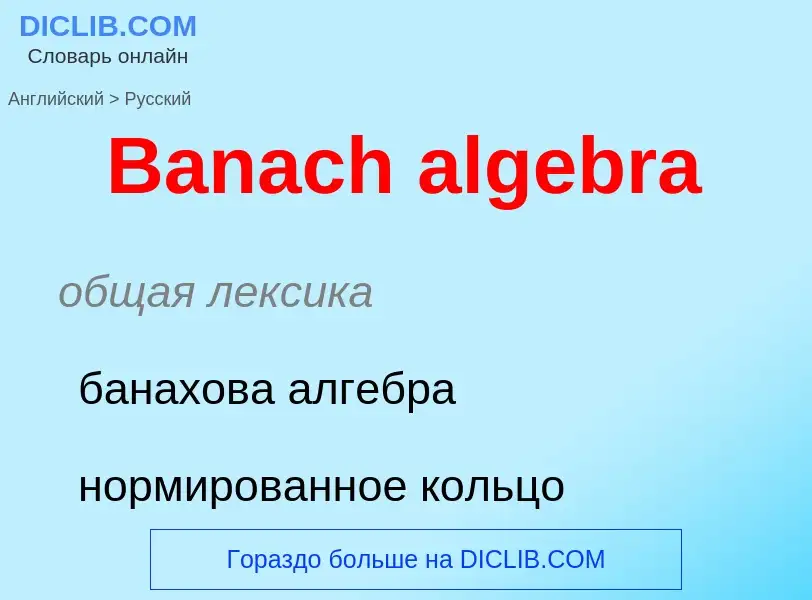Translation and analysis of words by artificial intelligence
On this page you can get a detailed analysis of a word or phrase, produced by the best artificial intelligence technology to date:
- how the word is used
- frequency of use
- it is used more often in oral or written speech
- word translation options
- usage examples (several phrases with translation)
- etymology
Banach algebra - translation to russian
общая лексика
банахова алгебра
нормированное кольцо
математика
пространство характеров
Definition
Wikipedia
In mathematics, especially functional analysis, a Banach algebra, named after Stefan Banach, is an associative algebra over the real or complex numbers (or over a non-Archimedean complete normed field) that at the same time is also a Banach space, that is, a normed space that is complete in the metric induced by the norm. The norm is required to satisfy
This ensures that the multiplication operation is continuous.
A Banach algebra is called unital if it has an identity element for the multiplication whose norm is and commutative if its multiplication is commutative. Any Banach algebra (whether it has an identity element or not) can be embedded isometrically into a unital Banach algebra so as to form a closed ideal of . Often one assumes a priori that the algebra under consideration is unital: for one can develop much of the theory by considering and then applying the outcome in the original algebra. However, this is not the case all the time. For example, one cannot define all the trigonometric functions in a Banach algebra without identity.
The theory of real Banach algebras can be very different from the theory of complex Banach algebras. For example, the spectrum of an element of a nontrivial complex Banach algebra can never be empty, whereas in a real Banach algebra it could be empty for some elements.
Banach algebras can also be defined over fields of -adic numbers. This is part of -adic analysis.

